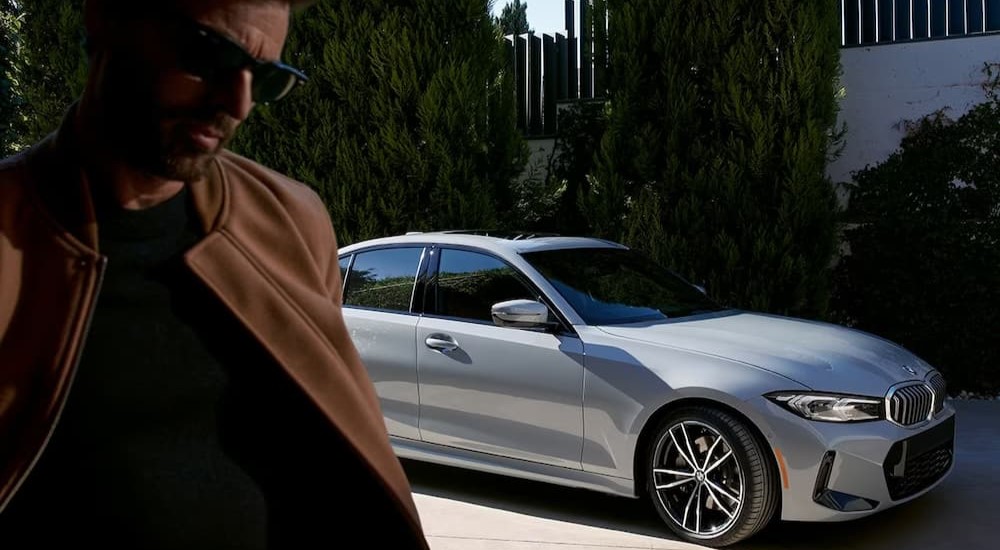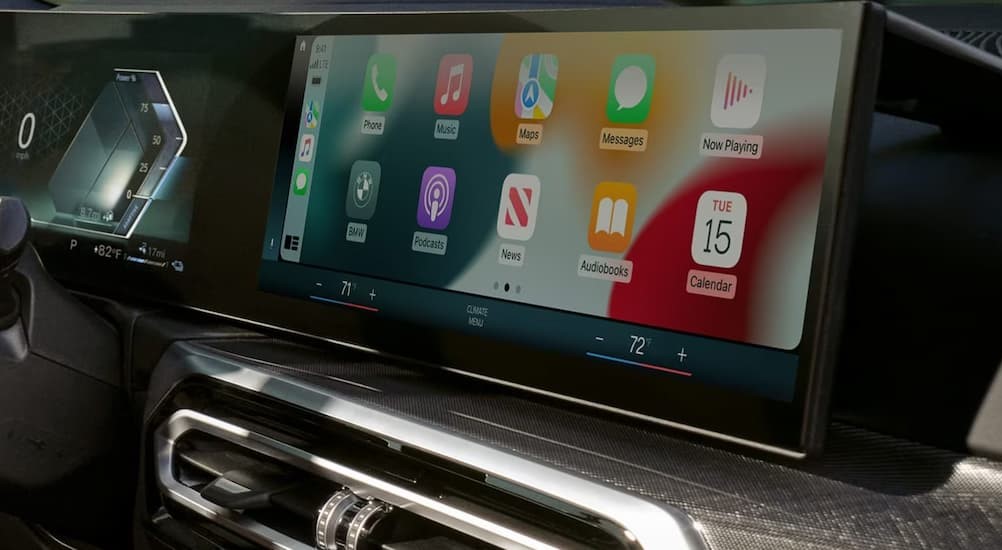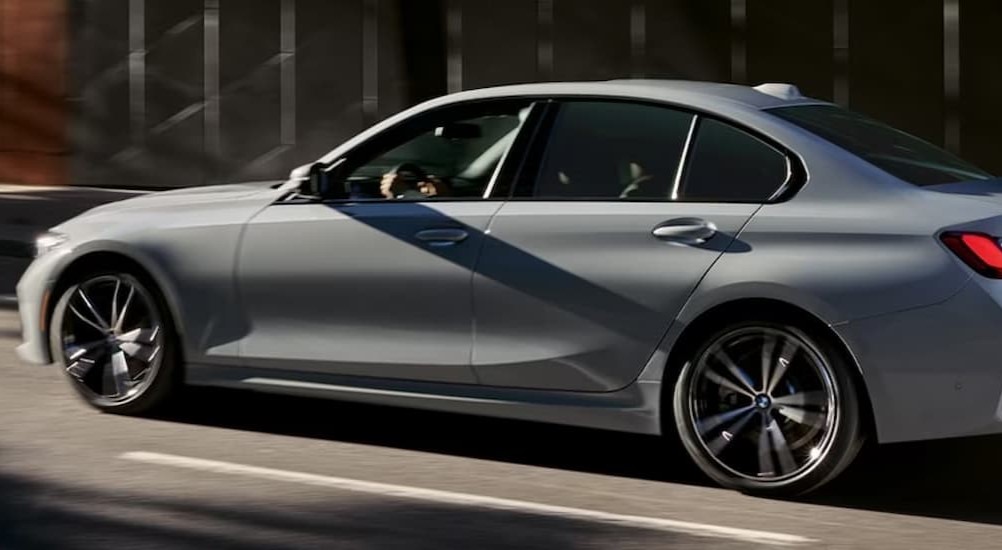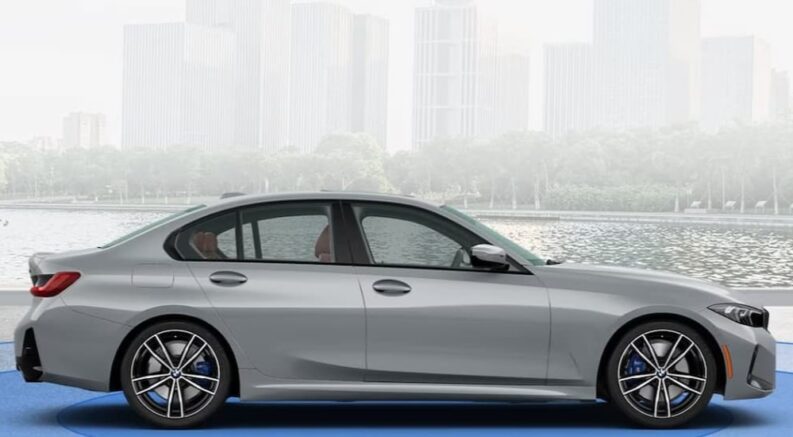Picture this: you’re going about your day, running errands around town in your BMW 3 Series, and something goes wrong. It could be a distressing noise, a strange smell, or an illuminated dashboard light, but no matter the issue, it’s a sign to head to your trusted mechanic or a BMW store. This can be a stressful time for any driver, but no matter how harried things get, there’s one important question to consider whenever you’re handed a quote for a vehicle repair or maintenance issue: are they going to use original equipment manufacturer (OEM) parts?
OEM parts are generally considered the best parts and accessories a driver could ask for as they’re manufactured by the same companies that provided the vehicle’s original parts. Aftermarket parts, which describe parts made by any brand other than the original manufacturer, represent the rest of the spectrum and while they’re often affordable, they can come with some downsides. OEM parts can be pricey, but for those seeking the best performance and longevity, they’re a worthwhile investment.
If you’re talking about your average jalopy, the OEM vs aftermarket debate might not be that much of a factor, but the equation changes a bit when you get into the luxury segment. With an average sale price of $75,000, luxury vehicles represent a significant investment and one that should be taken care of accordingly. So why should you turn to OEM BMW parts and accessories next time you’re facing a repair or maintenance task? Let’s find out…

They’ll Save You Money
Full disclosure: OEM parts can be a little more expensive than aftermarket options, but they can end up costing you a lot less in the long run. This is because OEM parts tend to offer improved performance over aftermarket parts and accessories, meaning they’ll last longer while allowing your vehicle to perform at its best. Only 25% of aftermarket parts can match the performance of OEM offerings, according to a study conducted by the Certified Automotive Parts Association. This figure is especially important when it comes to parts that relate to driver safety, such as the braking system, airbags, and even seat belts–those are the last parts you want to discover are poor quality when you need them.
OEM Parts Are Reliable
With a reputation for reliability, you can buy yourself some valuable peace of mind by going with OEM parts over their aftermarket alternatives. It’s easy to write off OEM superiority as nothing but a slick marketing strategy, but think about it this way: automakers aren’t in the business of losing money, and given the fact that BMW would be on the hook for any major failures in the first four years or 50,000 miles as part of their warranty coverage, they’re going to ensure that a vehicle’s OEM parts are the best possible components for the job. The OEM market allows drivers to source these same parts, replacing worn or failed components with the precision-crafted parts that BMW engineers chose for the job in the first place.

They Provide The Best Fit
When you go with OEM parts and accessories, you can be sure of a perfect fit every time. This is a huge selling point, especially when compared to aftermarket parts. That’s not to say aftermarket parts won’t fit your vehicle in many cases, but it all comes down to the business model of aftermarket manufacturers. To make manufacturing a specific part or accessory worthwhile from a business perspective, aftermarket brands have to ensure it’ll fit as many models as possible to serve the widest customer base. This could result in some slight fudging of dimensions and sizing to ensure the part fits a wide variety of vehicles, but you’ll find no such compromises when it comes to OEM parts.
OEM brands manufacture specific parts for specific vehicles, using the same designs and dimensions that were drawn up in the vehicle’s original schematics. If you’re the type of driver who dreads returning to the auto parts store time after time in search of the perfect fit, OEM parts are a great way to avoid this frustrating experience. Between comparing different brands, reading reviews, price shopping, and making sure that it’s the right part for your specific make, model, and year, aftermarket parts can be a major hassle that keeps your vehicle off the road for longer than necessary.
OEM Parts Are High-Quality
I’m not out to scare you into using OEM parts, but the fact is that when it comes to aftermarket parts, it’s tough to know exactly where they’re coming from. In the best-case scenario, they’re made by a reliable manufacturer with strict standards and precisely engineered to fit your vehicle; all too often, this isn’t the case. There aren’t many rules governing the sale of aftermarket parts, so it’s entirely possible that the “new” brake rotor you source could come from a used car, third-party supplier, or even a junkyard. These parts are almost always going to be cheaper than OEM components, but there can be a lot of hidden costs associated with these used parts. When you shop for OEM parts and accessories, you can drive with confidence knowing that they’ve met a brand’s strict manufacturing standards and that they’re brand-new, or at least reconditioned by a qualified BMW technician.

They Come With A Warranty
Warranty coverage is often one of the most compelling reasons to choose OEM parts over their aftermarket alternatives. There’s nothing quite as annoying as paying for a repair only to have the component fail in the following weeks or months, but that can easily be avoided by going with OEM parts and accessories. Unlike aftermarket parts, most OEM parts come with a one-year warranty that protects drivers against obvious defects, offering a level of security that can’t be matched.
BMW takes this warranty coverage to the next level, offering a comprehensive policy that covers many popular OEM parts and accessories for two years with no limit on mileage. From shock absorbers and strut assemblies to mufflers, starters, water pumps, and alternators, BMW will cover the cost of repair and replacement–including labor costs–for the first 24 months. The automaker even offers extended coverage beyond the two-year mark, covering the replacement (minus labor costs) indefinitely as part of its Lifetime Limited Parts Warranty Coverage policy. There are a few caveats: the policy doesn’t extend to failures resulting from negligence, improper installation or improper maintenance, or issues due to engaging in competitive driving or racing, and the parts must also be purchased from a BMW dealership and installed by an authorized BMW center.
Take the Best Care of Your BMW
When it comes to keeping your BMW on the road and performing at its best, it’s important to not cut any corners. While aftermarket parts and accessories might seem like a great deal, they’re not always the best choice when it comes to your vehicle’s health or your wallet. BMW crafts some of the finest vehicles on the road today, and skimping on parts and accessories can have a major impact on your overall driving experience. From long-term savings to improved reliability, fit, and overall quality, there are lots of reasons to choose certified OEM BMW parts and accessories when it comes time for your next repair or maintenance task. The automaker’s generous two-year warranty is among the best in the business, and the extended Lifetime Limited Parts Warranty Coverage is tough to beat when it comes to comprehensive, long-term coverage. So next time you’re handed a quote for a repair on your BMW, ensure you’re getting the best possible OEM BMW parts and accessories.

